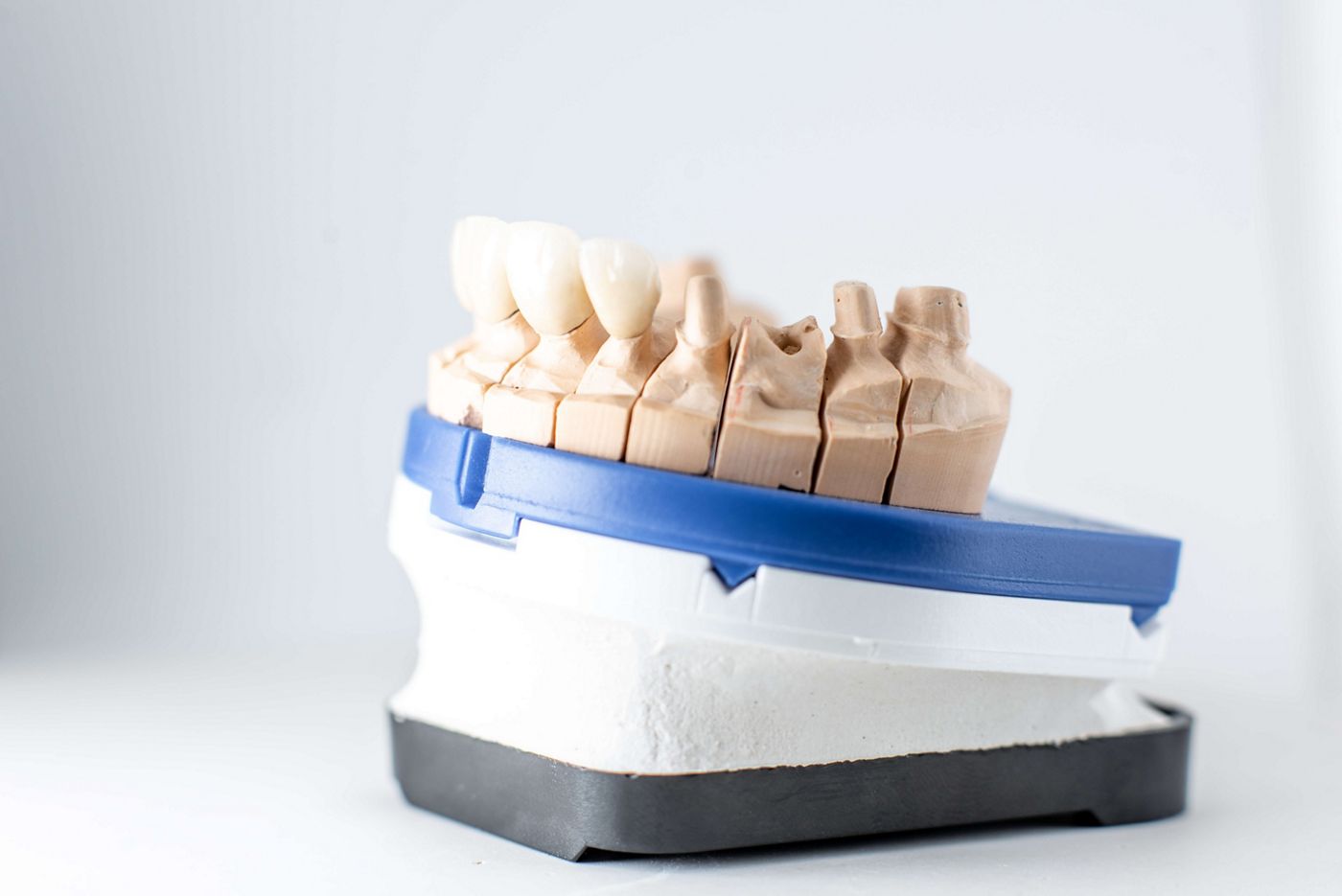How much are dentures in the UK?
Dentures come with various costs depending on their type, materials and customization required. We explore the types of dentures and their costs in the UK in this quick guide.

Why do people need dentures?
Dentures are not just about aesthetics; they play a crucial role in overall oral health and functionality. People may require dentures for several reasons, including tooth loss due to decay, periodontal disease, or injury. Without replacement, missing teeth can lead to difficulties in eating and speaking, as well as cause facial muscles to sag, altering one's appearance.
Furthermore, dentures help in maintaining the alignment of remaining teeth, which might shift if gaps are left unfilled. Modern dentures are designed to be comfortable and mimic the appearance of natural teeth closely, enhancing both the functional and aesthetic aspects of a person's smile.
What types of dentures are available in the UK?
There are primarily two types of dentures: complete and partial. Complete dentures are used when all teeth are missing while partial dentures are for those who still have some natural teeth remaining. Each type can be further customised based on materials and specific needs.
Dentures in the UK often come in two varieties:
Conventional dentures are made after the remaining teeth are removed and the gum tissue has healed, while immediate dentures are prepared in advance and can be positioned as soon as teeth are removed.
Partial dentures, on the other hand, are often attached to the natural teeth with metal clasps or precision attachments, offering more stability.
There is also a less-known type of implant denture, which enhances both the functionality and the aesthetics. Implant dentures offer several advantages over conventional dentures, including improved stability, reduced bone loss, better chewing efficiency, and greater comfort.
How much do dentures typically cost?
The cost of dentures can vary widely based on the type, material, and customization required. On average, a complete set of dentures can cost from £500 to £2500 in the UK. This price fluctuation is primarily due to the quality of materials used and the complexity of the dental work needed.
Partial dentures tend to be less expensive than complete ones but the cost still depends on the number of teeth being replaced and the type of material used. High-end materials like porcelain, which mimic the look and feel of natural teeth, can significantly increase the price. It's also important to note that custom-fitted dentures, which offer more comfort and a better fit, will typically be more expensive than standard options.
Are there affordable options for dentures?
Affordable denture options are available for those on a tight budget. Low-cost dentures are typically made from more basic materials and may not offer the same level of comfort or customisation as more expensive options. However, they provide a functional solution for those in need.
Government programs, dental schools, and non-profit organisations may be able to provide lower dental care, including dentures. Additionally, some dental practices offer financing plans or sliding scale fees based on income, making dentures more accessible to a wider range of people. It’s important to research and consult with dental professionals to find the most cost-effective solution that doesn’t compromise quality.
Does dental insurance cover the cost of dentures?
Navigating the complexities of dental insurance coverage for dentures is crucial. Many dental insurance plans do cover part of the cost of dentures, but the coverage level can vary significantly. It's important to understand the specifics of your policy, including deductibles, co-payments, and maximum coverage limits.
When considering dental insurance, it’s also worthwhile to inquire about waiting periods, as some policies may not cover dentures immediately.
How do the costs vary by location and dentist?
The cost of dentures can vary significantly based on geographic location and the dental practice chosen. Typically, dental costs are higher in urban areas compared to rural areas due to the higher cost of living and operational expenses. Additionally, dentists with more experience or those who specialize in prosthetic dentistry might charge more for their services.
Researching and comparing prices among various dentists in your area can help in finding a cost-effective solution. Online reviews and referrals from friends or family can also be valuable in choosing a reputable dentist who offers reasonable prices.
What additional costs should be considered?
When budgeting for dentures, it's essential to consider additional costs beyond the initial purchase.
Maintenance and repair costs can add up over time. Regular check-ups, adjustments, and professional cleaning are part of the ongoing care necessary to keep dentures in good condition and ensure they fit properly.
Long-term financial considerations also include potential replacement costs. Dentures typically last between 5 to 10 years, so planning for future replacements is essential. Investing in higher-quality dentures may have a higher upfront cost but can be more cost-effective in the long run due to their durability and reduced need for repairs.
Long-term financial considerations of wearing dentures
Investing in dentures is not just a one-time cost. Over the years, replacement and ongoing maintenance can add to the financial burden.
High-quality materials and proper fit can reduce the need for frequent replacements, offering a more cost-effective solution in the long run. It's also wise to consider the health benefits of dentures, which can lead to better nutrition and overall well-being, possibly reducing other medical expenses.
Understanding these long-term financial and health considerations is crucial when deciding on denture options.